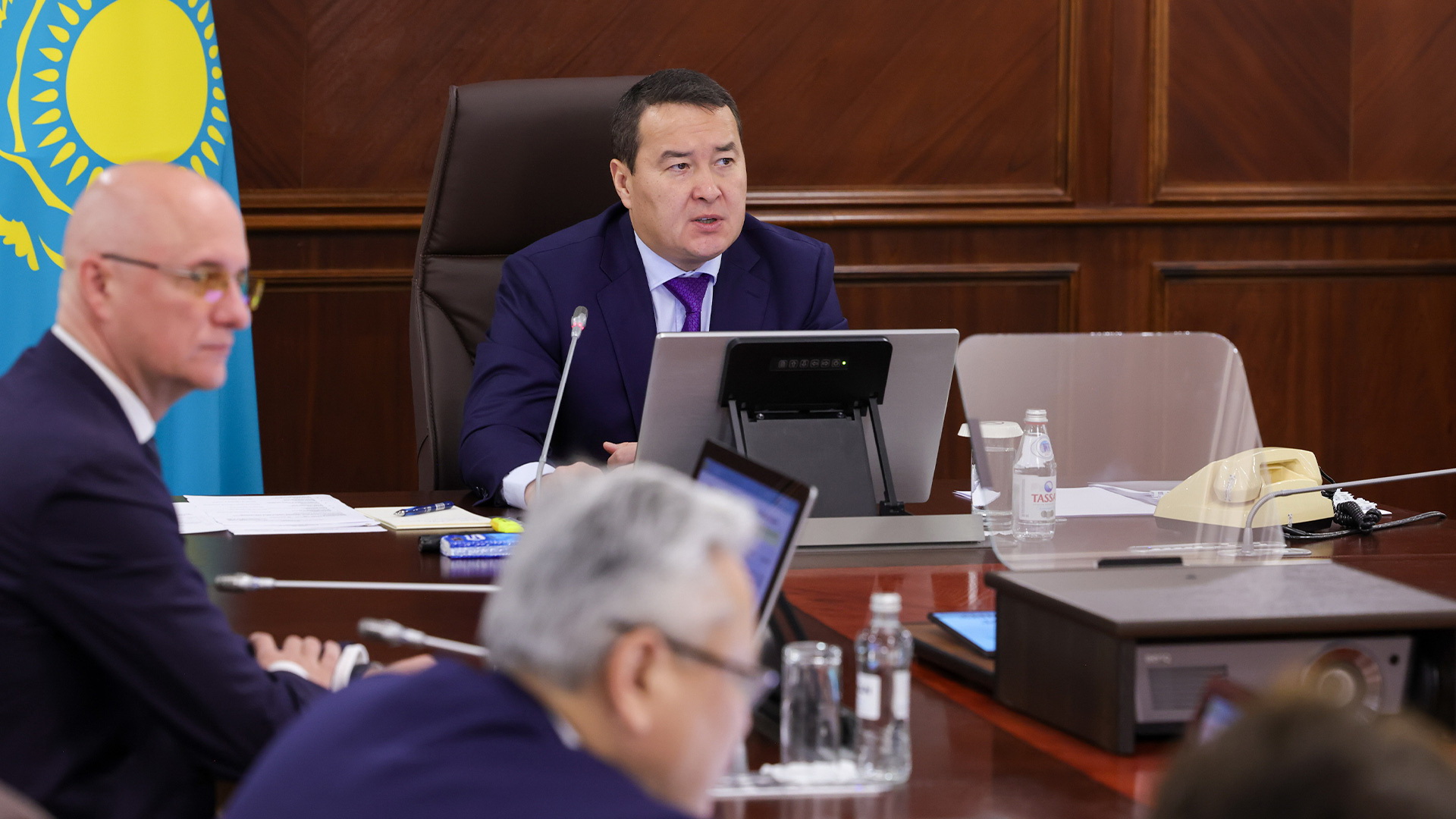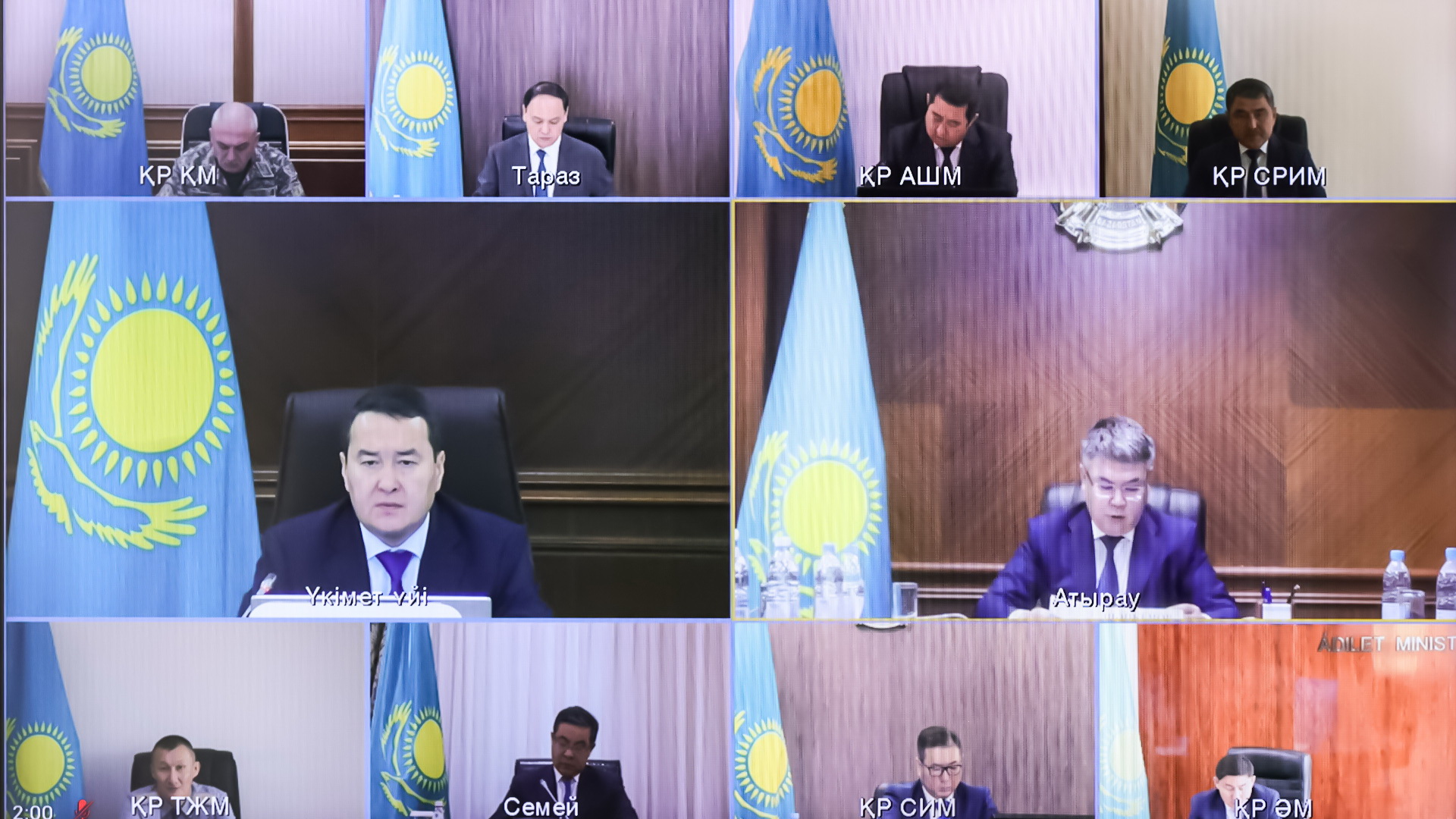26 September 2023, 11:31
 Issues of improving the availability of primary health care (PHC) were considered at the Government session chaired by Prime Minister of the Republic of Kazakhstan Alikhan Smailov.
Issues of improving the availability of primary health care (PHC) were considered at the Government session chaired by Prime Minister of the Republic of Kazakhstan Alikhan Smailov.
In her report, Health Minister Azhar Giniyat noted that the assistance within the framework of PHC in the republic provide 5617 objects. These include medical stations, medical outpatient clinics, polyclinics, feldsher-midwifery stations, etc.
The work of this health care unit is based on the principle of family care with territorial accessibility. For this purpose, district multidisciplinary teams have been set up, including a district doctor, three nurses, a social worker and a psychologist.
Over the past three years, the State has implemented a number of measures to strengthen primary health care. Thus, the financing of outpatient care has increased, the coverage of consultative and diagnostic assistance has increased 7 times, the availability of expensive CT services has increased 9 times and MRI 6 times.
At the same time, the state standard of the network of health care organizations has been revised. In particular, in villages with a minimum population of 500 people, the number of medical workers has been increased from one to three. The functions of nursing reception have been expanded. For patients with suspected cancer, examination in primary health care organizations has been accelerated within the framework of the "green corridor".
In addition, the outpatient drug supply to primary health care organizations has increased. While in 2019, drugs were purchased for 48 diseases, in 2023 the list has been expanded to 126, covering about 4 million people. Early detection of diseases among children and rural residents has been strengthened.
In parallel, work is being done on digitalization of health care, development of transport medicine, training of qualified specialists, etc.
The Minister added that since this year the pilot National Project "Modernization of Rural Health Care" is also being implemented, under which it is planned to build 655 PHC facilities, modernize 32 multi-disciplinary central district hospitals and train at least 1,100 medical workers for rural health care by the end of 2025.
 Akim of Zhambyl region Yerbol Karashukeyev spoke about measures to involve citizens in the system of compulsory social health insurance. Akim of Atyrau region Serik Shapkenov informed about the work on modernization of primary health care facilities. Deputy Akim of Almaty Assem Nusupova also made a report.
Akim of Zhambyl region Yerbol Karashukeyev spoke about measures to involve citizens in the system of compulsory social health insurance. Akim of Atyrau region Serik Shapkenov informed about the work on modernization of primary health care facilities. Deputy Akim of Almaty Assem Nusupova also made a report.
Prime Minister emphasized that in recent years there has been an improvement in the availability of medical care. Thus, the list of diseases for which free drug provision is provided has expanded. Rehabilitation services have become more accessible. Funding for outpatient and polyclinic care is growing. New health care facilities are being commissioned, which is especially important for rural areas, where it is impossible to turn to other medical organizations.
"But problems still remain. For example, the population complains about long queues to narrow specialists, insufficient medical equipment. There are also questions about the provision of medicines for those who are registered for various diseases. Regional Akimats should take the most responsible approach to ensuring accessibility and quality of primary health care. Including the implementation of the national project "Modernization of rural health care"," Alikhan Smailov said.
According to the Head of Government, medical care should be as close as possible to the place of residence of people. Along with this, it is necessary to improve the quality of management on the part of the first heads of medical organizations.
"Sometimes due to poor management and coordination people do not receive the necessary medicine or treatment in time. Therefore, the Ministry of Health together with akimats should continue systematic work on these issues," Prime Minister pointed out.
According to him, to provide the industry with personnel, primarily narrow specialists, it is necessary to introduce new methods of stimulating graduates of medical universities and colleges, as well as experienced specialists to work in the regions, especially in villages.
At the same time, Alikhan Smailov pointed out that health care facilities are currently provided with 84% of medical equipment, more than half of which is worn out. In this regard, it is necessary to re-equip primary health care facilities according to the existing standards.
Prime Minister also highlighted the importance of further digitalization of health care, especially primary health care facilities. In particular, it is required to accelerate the process of connecting health care organizations below the district level to high-speed Internet.
#Alikhan Smailov #The Prime Minister of the Republic of Kazakhstan #Government session #Rural medicine"It is necessary to ensure the introduction of telemedicine and remote services even in villages, so that people can get the necessary consultation promptly and locally. These measures are necessary to achieve the tasks set by the Head of State to expand access to medical services at the place of residence," he concluded.
Stay updated about the events of the Prime minister and the Government of Kazakhstan - subscribe to the official Telegram channel
Subscribe